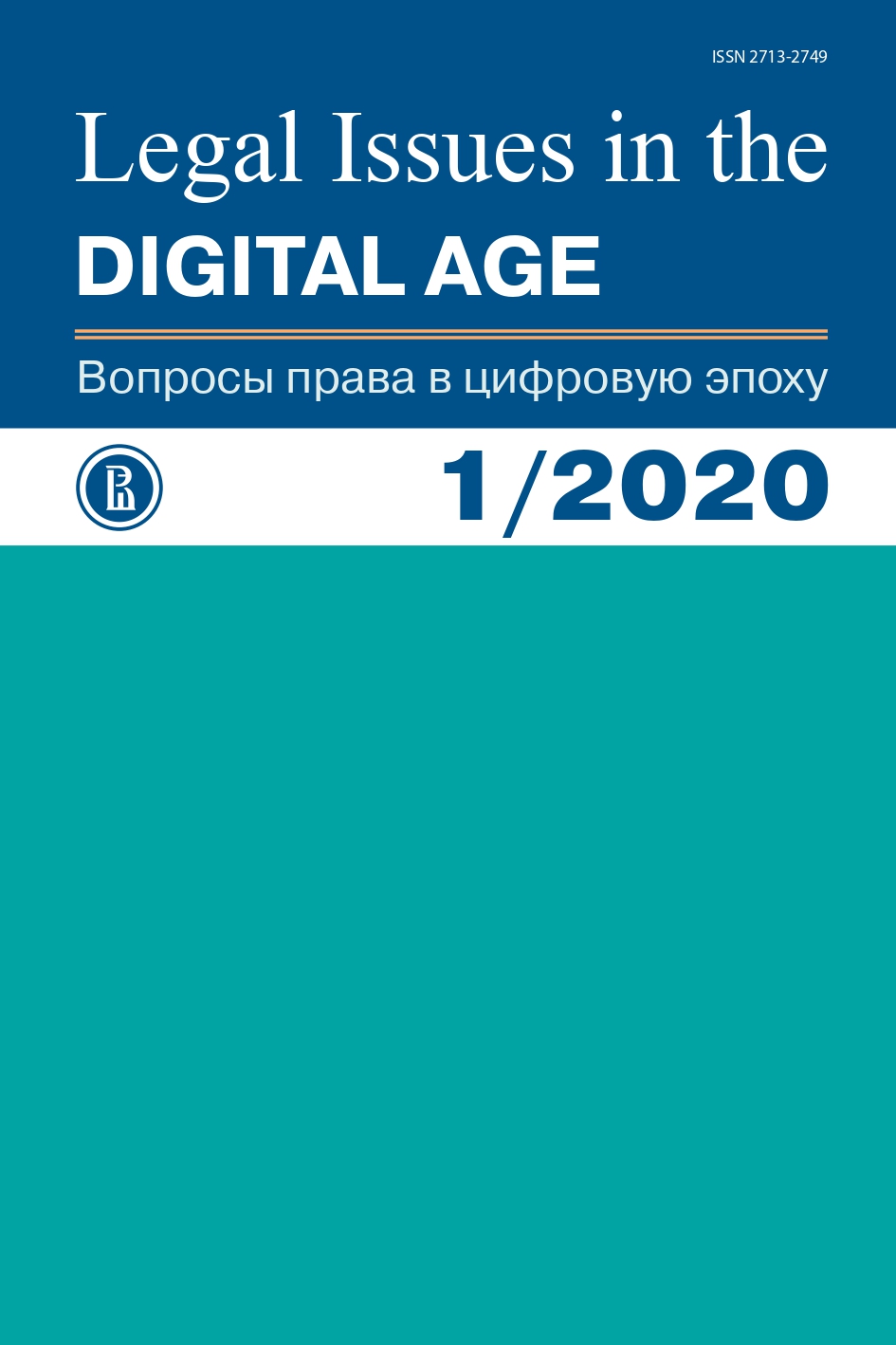The Challenges of Blockchain Technology to Competition Law
Abstract
Blockchain is a catch-all term for a combination of three technologies: distributed ledger, cryptology and network protocols. The first enables storing the same info in different places, the second allows secure transactions to be recorded and then encrypted on the distributed ledger. The third element governs the network and verifies transactions across the network automatically and independently. Considered by many as “the biggest technological innovation since the Internet”1, blockchain is a decentralized, more secure and transparent model for transactions that operates on an encrypted peer-to-peer basis. This model makes trust between parties superfluous by instead placing trust in the underlying technological platform. This would effectively remove the need for intermediaries whose business has been to make up for the lack of trust; these include banks, brokers, governments, internet platforms, law firms etc. While reducing the costs of contract enforcement and thus facilitating trade, blockchain technology may have significant implications for antitrust law. As decentralized organizations such as blockchain are not recognized as legal persons, this raises questions about whether anticompetitive practices and their perpetrators can be identified. For example, can a non-entity hold a dominant position? Can blockchain create a “monopoly without a monopolist”? Finally, if a blockchain is dominant, which users and/or entities hold that dominant position? This article intends to highlight the challenges that blockchain presents to the analyses of unilateral anticompetitive practices.
References
Abramowicz M. (2016) Cryptocurrency-Based Law. Arizona Law Review, no 2, pp.359, 420.
Bork R. (1978) The Antitrust Paradox: A Policy at War with Itself. New York: Basic Books, p. 462.
Bradley R., Summers L. (1990) On The Origins of the Sherman Act. The Cato Journal, no 3, pp. 737, 740.
Champagne P. (2014) The book of Satoshi: The collected writings of Bitcoin creator Satoshi Nakamoto. Plano: Publishing LLC, p. 136.
Cuccuru P. (2017) Beyond Bitcoin: An Early Overview on Smart Contracts. International Journal of Law & Information Technology, 2017, no 3, p. 179.
Dannen C. (2017) Introducing Ethereum and Solidity: Foundations of Cryptocurrency and Blockchain Programming for Beginners. New York: Apress, p. 185.
De Filippi P., Wright A. (2018) Blockchain and the Law: the Rule of Code. Boston: Harvard University Press, p. 209.
Devlin A. & Jacobs M. (2012) Anticompetitive Innovation and the Quality of Invention. Berkeley Technology Law Journal, no 1, pp. 1–53.
Economides N., Lianos I. (2010) Elusive Antitrust Standard on Bundling in Europe and in the United States in the Aftermath of the Microsoft Cases. Antitrust Law Journal, vol. 76, p. 483.
Ernst D. (1990) The New Antitrust History. New York Law School Law Review, no 35, p. 879.
Freedman M. (1962) Capitalism and Freedom. Chicago: University of Chicago Press, p. 202.
Hawk B (2018) English Competition Law before 1900, The Antitrust Bulletin, no 1, p. 19.
Huberman G. (2017) Monopoly Without a Monopolist: An Economic Analysis of the Bitcoin Payment System, Columbia Business School Research Paper, no 17–92, p. 2.
Kaiser H. (2011) Are “Closed Systems” an Antitrust Problem? Competition Policy International, no7, pp. 91, 102–103.
Кreps D., Wilson R. (1982) Reputation and imperfect information. Journal of Economic Theory, no 2, p. 253–279.
Markovits R. (2014) Economics and the Interpretation and Application of U.S. and E.U. Antitrust. The Antitrust Bulletin, no 59, pp. 3, 19.
O’Donoghue R., Padilla J. (2013) The Law and Economics of Article 102 TFEU. Oxford: Hart, p. 795.
Popper N. (2016) Digital. Gold: Bitcoin and the Inside Story of the Misfits and Millionaires Trying to Reinvent Money. New York: Harper, p. 412.
Posner R. (2001) Antitrust Law. Chicago: University of Chicago Press. p. 304.
Posner E., Weyl G. (2018) Radical Markets: Uprooting Capitalism and Democracy for a Just Society. Princeton: Princeton University Press, p. 368.
Raskin M. (2017) The Law and Legality of Smart Contracts. Georgetown Law Technology Review, no1, p. 305.
Raval S. (2016) Decentralized Applications: Harnessing Bitcoin’s Blockchain Technology. Sebastopol (Cal.): O’Reilly Media, p. 106.
Rochet J.-C., Tirole J. (2003) Platform Competition in Two-Sided Markets. Journal of the European Economic Association, no 4, p. 990.
Schrepel T. (2018) Predatory Innovation: The Definite Need for Legal Recognition. Science & Technology Law Review, no21, p. 22.
Schrepel T. (2018) Antitrust conversations with Nobel laureates. Concurrentialiste Review, no 1, p. 15.
Schrepel T. (2019) Collusion by Blockchain and Smart Contracts. Harvard Journal of Law & Technology, no 1, p. 118.
Swan M. (2015) Blockchain: Blueprint for a New Economy. Sebastopol (Cal.): O’Reilly Media, p. 131.
Tapscott D., Tapscott A. (2016) A Blockchain Revolution: How the Technology behind Bitcoin is Changing Money, Business and the World. New York: Random House, p. 358.
Tsu S. (2017) The Art of War. London: Macmillan, p. 152.
Vigna P., Casey J. (2018) The Truth Machine: the Blockchain and the Future of Everything. New York: St. Martin’s Press, p. 302.
Walch A. (2017) The Path of the Blockchain Lexicon (and the Law). Review of Banking & Financial Law, no 36, p. 713.
Werbach K. (2018) The Blockchain and the New Architecture of Trust. Cambridge (Mass.): MIT Press, p. 344.
Werbach K. (2018) Trust, but Verify: Why the Blockchain Needs the Law. Berkeley Technology Law Journal, no 33, p. 487.
Authors who publish with this journal agree to the Licensing, Copyright, Open Access and Repository Policy.










